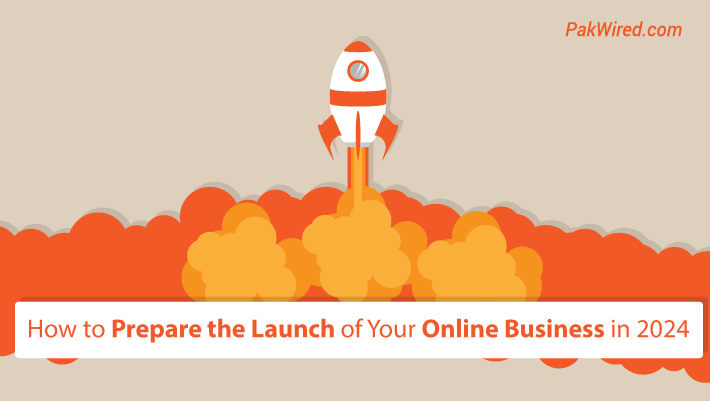When you’re launching your online business, there are a million things to think about – from finding the perfect name to choosing the right tools for productivity and growth.
But there are also a few more mundane aspects to think about, and an order of priority you should follow. Here’s a straightforward, universal guide on how to prepare the launch of your online business.
Check off Administrative Formalities
To start with, you need to check all the administrative boxes involved in launching an online business. Depending on where you’re based and what sort of business you’re starting, these will vary in complexity.
An entrepreneur who wants to open a virtual accounting agency has to fulfill a different set of criteria than an aspiring freelance web designer. Some industries are regulated and require permits or licenses, especially if you want to operate on an international basis, as most online businesses do.
As frustrating as it can be, before you get to the on-hands, exciting aspects of launching your business, you need to get to grips with the formal requirements and registration process.
Get Your Bookkeeping and Accounting Workflows in Order
Another dry but important step in launching your online business is getting your bookkeeping and accounting workflows in order. Amidst the excitement of looking for clients and getting your first commissions, it can be tempting to postpone this step.
However, having a solid foundation for keeping your invoices, expenses, accounts, and tax-relevant information straight from the start pays off very quickly.
Before you start looking for clients, you should brush up on your accounting skills, outsource to a bookkeeping business, or at least look for the right financial management tool to help you log everything correctly.
Fine-Tune Your Online Business Website
Next up, you need to fine-tune your website – the heart of your online business. As important as social media marketing is, your website is your home base. It’s how the majority of your clients will discover you, your products, and your services.
Consequently, you need to tune it to a T.
To start with, you need to make sure your website design is appealing and accessible. This involves choosing the right layout, colors, fonts, spacing, and font sizes. Plus, you need to ensure that your design works on both desktop and mobile devices – especially since the majority of internet traffic now comes from smartphones and tablets, rather than regular computers.
Another key criterion is website speed. Statistics show that users just abandon websites that take too long to load – 40% wait no longer than 3 seconds. In addition, loading speeds are a key deciding factor for search engines like Google when it comes to ranking your site in results.
Keeping speed in mind while designing your site (for instance by avoiding complex animations or custom fonts) is already a good first step. However, you also need to invest in fast hosting, consider a content delivery network (CDN) and pick the right image optimization and caching software.
Finally, there is SEO – search engine optimization. While website speed is one ranking factor, equally important is the content you have on your site, especially your copy. You need to use SEO tools to pinpoint search keywords that people use to look for businesses like yours, and then strategically incorporate them into your website. That way, Google will know how to index your site, and where to rank it in search results.
Strategize on Social Media
Beside your website, social media is a key part of your online presence. However, instead of making a broad sweep across all platforms, you need to approach social media strategically.
Creating and posting content on social media is work-intensive. As a new entrepreneur, you probably won’t have time to keep up the type of consistent posting that is required to build an audience across LinkedIn, TikTok, Instagram, YouTube, and Facebook.
Instead, you need to pinpoint which platforms and content types are most relevant to your target audience. Which demographic are you trying to market to? Are they Gen Z hooked on TikTok? Or Millennial professionals who scroll through LinkedIn articles during their coffee break?
Doing this kind of research will help you design a realistic social media strategy to grow a targeted presence. Once your business grows, you can always expand.
Make Communication a Priority
Finally, a key element of launching your online business is making communication a priority.
From the start, you need to pick and choose the communication channels you want to provide for customers to reach out – from website contact forms and a dedicated business phone number to live chat and a business WhatsApp account. There are numerous, versatile options out there, for online businesses of all sizes.
As a new entrepreneur, though, you need to be selective. While it can be tempting to just add as many channels as possible, you’ll spend a lot of time hopping between platforms to answer queries, rather than doing actual work for clients. Picking two or three channels max will help you keep conversations flexible, while also guarding your focus.
Final Thoughts on Launching Your Online Business
Launching an online business is a complex endeavor. However, by following the strategy above, you’ll build a solid foundation on which you can expand as your business grows. Time to fall back and take the next step!

#Prepare #Launch #Online #Business



